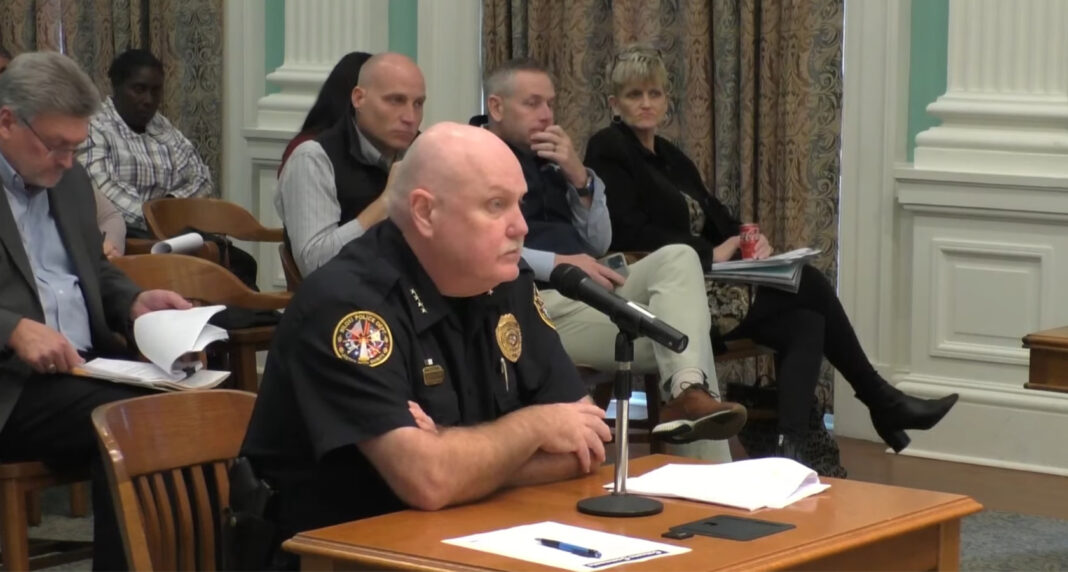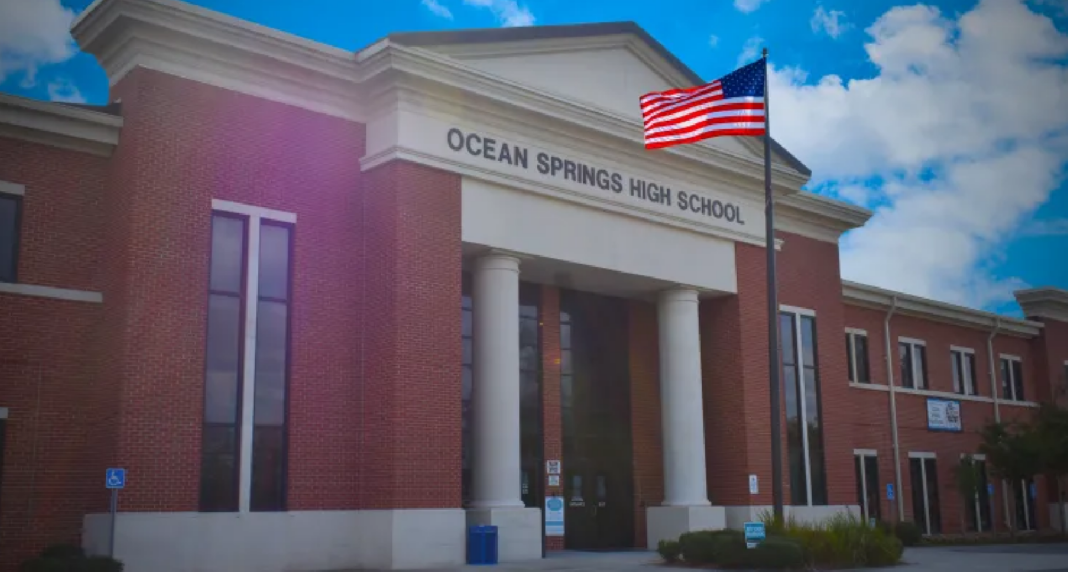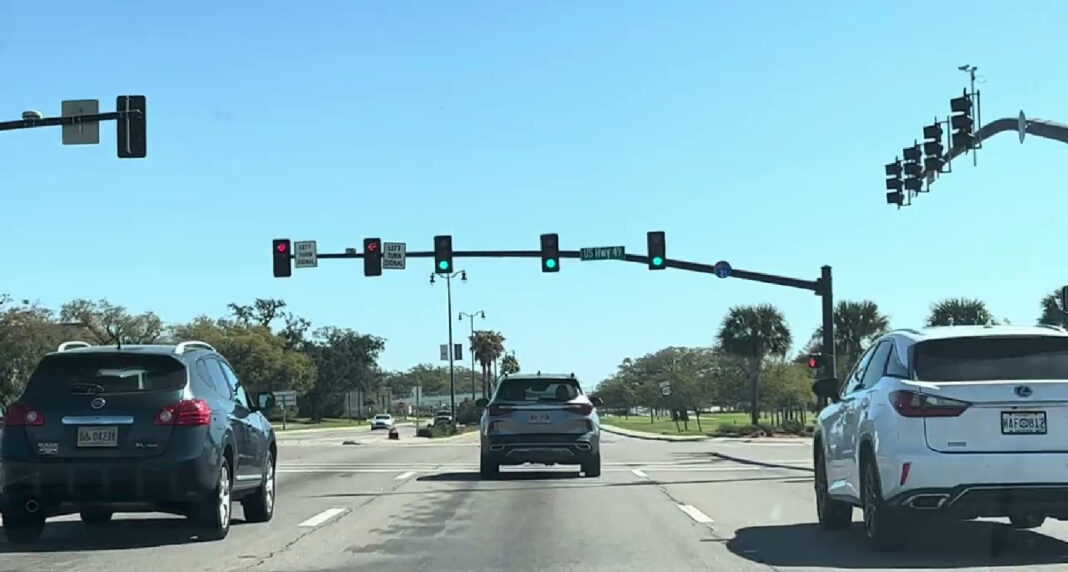(This is the first in a multi-part series see all parts of the saga here.)
MISSISSIPPI GULF COAST — Drivers in Biloxi may still believe the city’s high-tech crackdown on uninsured motorists is in full swing — but behind the scenes, the program has come to a screeching halt. Despite this, city officials have remained tight-lipped, leaving residents in the dark.
Last year, neighboring Ocean Springs abruptly ended its contract with Securix, a company that uses license plate-reading cameras to identify and fine uninsured vehicle owners. The partnership collapsed under a barrage of systemic issues and legal controversies. Yet, just months later, the same players — now rebranded as “Securix Mississippi” — were back on the road, seeking new municipal partners.
In January, Biloxi’s City Council debated whether to adopt the revamped program. During the discussion, officials assured council members that the flaws that doomed the Ocean Springs deal had been resolved.
(Watch the public hearing here. Note: Biloxi wrongly dated the Jan 23, 2024 meeting as Jan 23, 2023.)
Councilman Paul Tisdale pressed for clarity about the prior fiasco. “I think Securix had an agreement with a neighboring city, and they ended up discontinuing,” he said. Police Chief John Miller acknowledged this but reassured the council. “That was in the early days of the program,” he explained. “All those issues have been resolved. I wasn’t a big fan of the program in the beginning, but now I feel comfortable.”
City Attorney Peter Abide joined in, brushing off concerns over the legal battles that emerged in Ocean Springs. “Ocean Springs was basically a learning experience for all these other cities,” he said, emphasizing the program’s updated technology and more detailed citations.
Councilman Robert Deming raised constitutional concerns, specifically the Sixth Amendment right to confront one’s accuser. He questioned whether a Securix representative testifying in court would satisfy this constitutional guarantee. Despite Deming’s objections, the council voted 5-2 in favor of contracting with Securix Mississippi LLC.
The partnership, however, would prove short-lived.
A Familiar Tale of Troubles
The problems Biloxi hoped to avoid were laid out last week by an Ocean Springs official. Ward 2 Alderman Rickey Authement detailed a series of red flags that had emerged in his city.
Many insured motorists were mistakenly cited due to errors in insurance databases, an issue that disproportionately affected older veterans insured through USAA. “It’s disheartening when people like that are getting insurance tickets,” said Authement.
Citations in Ocean Springs also falsely listed court dates, pressuring residents to pay $300 fines to avoid imagined legal consequences. Authement described the system as intentionally misleading: “It was used to make people think they had no choice but to pay.”
He also flagged conflicts of interest within the program, including the involvement of City Attorney Robert Wilkinson’s son, Alexander, who served as the program’s local operations director. “It was not a good look,” Authement noted.
Making matters worse, Jonathan Miller, Chairman of Securix, alleged that Wilkinson had a financial stake in the program and, along with his partners Josh Gregory and Quinton Erickson, “profited greatly” from the deal. Miller says Wilkinson “played both sides,” using his role as City Attorney to steer officials into the program, then making a great deal of money once Ocean Springs committed.
Biloxi’s Program Quietly Stalls
By spring, tickets began rolling out in Biloxi. Yet within months, chatter about citations abruptly died down. The reason? The program had come to a halt. Despite this, city officials have offered no public acknowledgment of its suspension.
When pressed for information, responses from city departments were vague and evasive. One representative from the Police Chief’s office mentioned “glitches” in the system. Another speculated there had been “some stops and starts” before finally conceding, “It’s possible that the program has been temporarily suspended.”
Perhaps the suspension stems from the financial troubles plaguing the company Biloxi chose to do business with.
Same Players, Different Label
Securix Mississippi was formed in August 2023 as a partnership between Jonathan Miller’s Securix LLC and QJR LLC — a company comprised of Quinton Erickson, Josh Gregory, and Robert Wilkinson. The program in Biloxi appeared to be a fresh start, but court documents reveal that financial instability quickly unraveled the partnership.
Shortly after the deal with Biloxi began, QJR filed suit against Securix LLC in Jackson County Chancery Court, seeking to dissolve Securix Mississippi. Miller responded with a countersuit. The legal filings suggest that Securix Mississippi is on the brink of collapse. “The fact is that Securix Mississippi will have no funds within the next thirty to sixty days,” QJR wrote in recent court filings. “For practical purposes, it has no assets.”
A Breach of Public Trust?
Biloxi’s decision to remain silent about the suspension of its uninsured motorist program raises significant questions about transparency and accountability. The city had no hesitation in promoting the program’s rollout earlier this year, so why the secrecy now that it has stalled?
Municipalities have a responsibility to keep citizens informed about programs that affect them directly. The Mississippi Open Meetings Act and Public Records Act were created to ensure that the operations of public bodies remain transparent. Yet Biloxi’s ambiguous responses and lack of public notifications fall short of these principles, leaving residents in the dark about a program that impacts their wallets and their trust in local governance.
By failing to disclose the suspension, Biloxi risks eroding public confidence. The question now is whether city officials will provide the transparency their citizens deserve — or continue to deflect and obscure the truth.
(This post is Part 2 of the series on the ongoing Securix saga. Part 1 can be viewed here. The next installment will uncover bully tactics used by key players to keep a lid of the controversies.)


